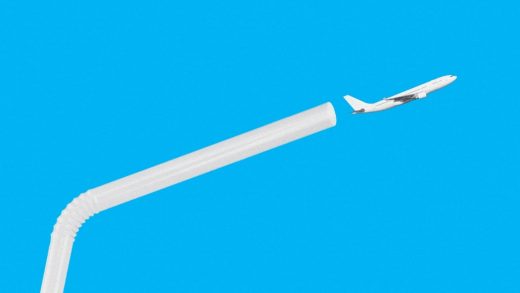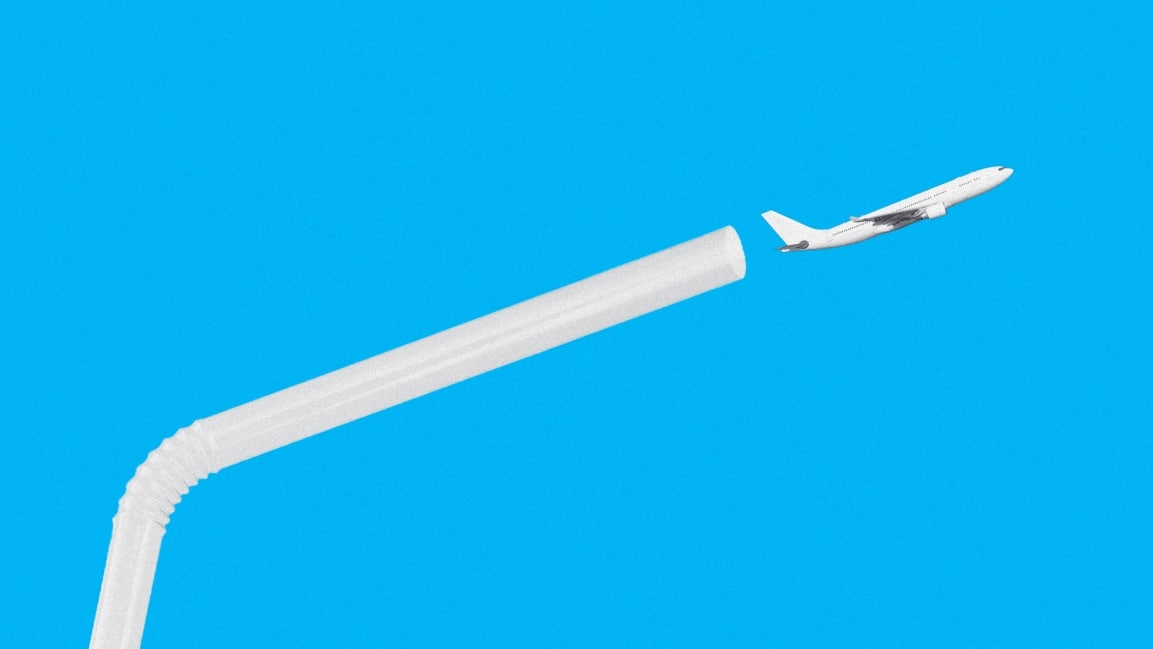Take off for the world’s first passenger flights without any single-use plastic
Portuguese airline Hi Fly took off from Lisbon on Wednesday without a single piece of single-use plastic on board their flight to Natale, Brazil–no plastic cups, no plastic silverware, no plastic cocktail stirrers, no plastic food containers.
The flight was a test run as the company hopes to ban single-use plastics from their planes entirely by the end of 2019. They have three more test runs planned, during which passengers will use bamboo cutlery and compostable food containers, made by Vegware, and other plant-based, renewable, lower-carbon or recycled materials.
“We can no longer ignore the impact plastic contamination has on ecosystems, as well as on human health,” Hi Fly president Paulo Mirpuri told Canadian television network CTV. “We know, too, from the feedback we have received from client airlines and passengers, that it’s the right thing for the airline to be doing.”
And in this Christmas Season we are proud to announce our gift for the planet Earth: the world’s first Single Use #PlasticFree Flight. #TurnTheTideOnPlastic #MirpuriFoundation #togetherforabetterworld #A340 #9HSUN pic.twitter.com/eBAYRyk36q
— Hi Fly (@hifly_airline) December 26, 2018
We couldn’t be prouder of being the first airline to perform a completely Single Use Plastic Free Flight. The first step to our ultimate goal to turn all our flights completely Single Use #PlasticFree by the end of 2019. #TurntheTideonPlastic #A340 #9HSUN pic.twitter.com/sTLl6eDCBk
— Hi Fly (@hifly_airline) December 27, 2018
While Hi Fly is first, they aren’t the only airline pledging to stop using single-use plastic. Air New Zealand announced in October that they are working to further cut their plastic usage. The airline is swapping out cups, coffee cups and lids, cheese plates and lids, and plastic bags over the next 12 months, after already removing single-use plastic straws, stir sticks, eye mask wrappers, and plastic toothbrushes from lounges and on board aircraft to reduce its plastic footprint.
In the U.S., Alaska Airlines has already cut plastic straws, and Delta and American have already begun phasing out some single-use plastic items. Now cities and food service companies are moving so quickly on banning plastic straws that a paper-straw manufacturer in the U.S. has had to build a new factory to meet demand. And according to a recent survey by the United Nations, 127 countries now have some regulation regarding single-use plastic.
(12)



